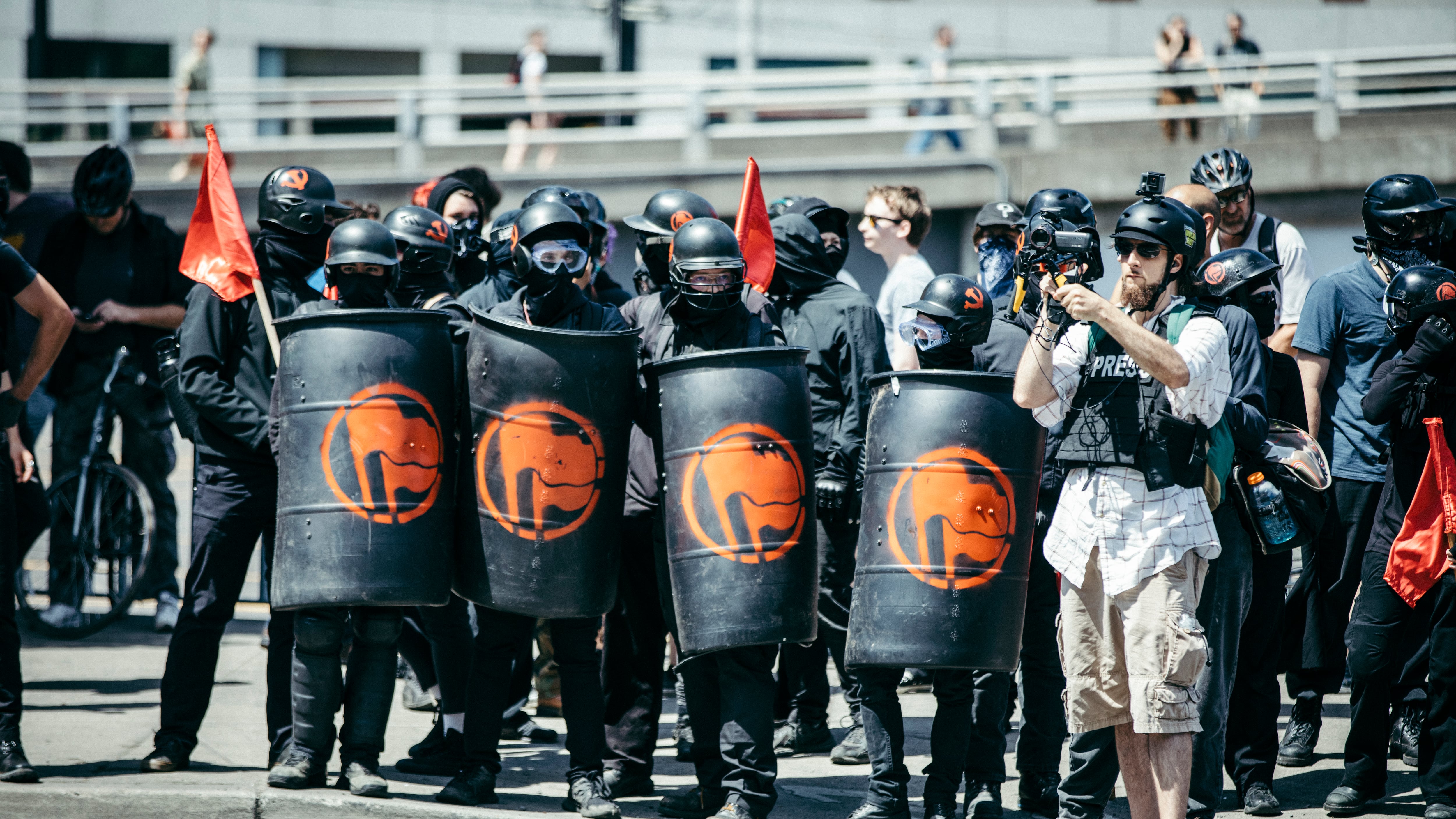Portland City Council has rejected Mayor Ted Wheeler's proposal to increase the power of police to control the violent political brawls in city streets.
The mayor's ordinance failed by a 3-2 count, with Commissioner Nick Fish casting the deciding vote.
"I'm not convinced we've done everything we can with the tools already at our disposal," Fish said before voting no. "That includes arresting people who violate our laws."
Fish said the city should use laws already on the books to stop right-wing extremists from picking fights with masked antifascists.
"It's long overdue," Fish said, "that we all link arms and tell the Proud Boys, Patriot Prayer, and those who would bring hate into our community: Stay home."
The rejection is a remarkable and embarrassing rebuke for Wheeler, a mayor who has received national attention for his struggles to stop political extremists from holding what amount to scheduled brawls. He and Police Chief Danielle Outlaw said they needed the new rules so officers could keep protesters apart without using force.
Today, he expressed resentment.
"There are two people in this city who are routinely held accountable for violence on the streets," Wheeler said. "And both of them are sitting in this chamber: Chief Outlaw and myself."
Wheeler introduced the ordinance without the support of a majority of his fellow commissioners, who he needed to pass it. Both commissioners Amanda Fritz and Chloe Eudaly quickly announced their opposition before the ordinance was formally introduced. Fish was undecided, but ultimately voted no.
Wheeler also declined to work with civil-rights advocates on an option that might have garnered wider support.
Today, he blamed the defeat in part on his critics. He said: "I learned one thing from this, colleagues, if you put an ordinance out and there's any question about its legality, make sure your lawyers get to the media first, because once that frame is set it is very hard to turn that frame around."
At City Council this morning, unlike last week, when opponents packed the chamber to testify against it, only a few dozen people arrived in the council chamber, many appearing at council for other matters. That's in large part because no public testimony was allowed before the vote, as is standard at second reading.
A handful of opponents wore plain white stickers with all-capital black writing "Protest is not a crime."
Wheeler announced the proposal on Oct. 15—but the press conference to pitch his new idea was marred by a political gaffe. The mayor revealed that Portland police had found four right-wing Patriot Prayer supporters stationed on parking garage rooftop with what Wheeler called a "cache of firearms."
Those comments led to a flurry of sharp criticism for both the mayor and the police. The Police Bureau later clarified that the rifles were stored in the trunk of a truck and ammunition was stored elsewhere in the vehicle. Officers did not make arrests or confiscate the guns, because the men were properly licensed.
Over the past month, Wheeler and his staff mounted a full-throated campaign to pass the ordinance. He and police chief Danielle Outlaw held 10-minute sit-downs with local reporters to champion the proposal. He tweeted alarming warnings about potential Election Day protests and reminders of past violence at right-wing rallies. He repeatedly attacked Mat dos Santos, the legal director at the American Civil Liberties Union of Oregon, after dos Santos called the ordinance unconstitutional. Wheeler's office recruited an out-of-state constitutional expert to analyze whether the ordinance, on its face, would be a First Amendment violation.
In the hours before the City Council vote, Wheeler offered one last appeal for his ordinance on Twitter: "You and I know how ugly it can get on twitter. So, I want to take this moment to thank all the residents, business owners, state lawmakers, mothers and fathers who took the time to call and email – sharing their support. Who took the time to understand."
You and I know how ugly it can get on twitter. So, I want to take this moment to thank all the residents, business owners, state lawmakers, mothers and fathers who took the time to call and email - sharing their support.
— Mayor Ted Wheeler (@tedwheeler) November 14, 2018
Who took the time to understand.#safetyprotestordinance
The ordinance has created a rift between the mayor's office and local civil rights advocates.
The ACLU, National Lawyers Guild Portland chapter, and many other civil rights organizations condemned the ordinance as impractical and likely unconstitutional. Some civil-rights advocates tried to convince the mayor to embrace an alternative approach.
Wheeler's spokeswoman says the mayor's staff is still considering those proposals, which she says would not have been undermined by the ordinance.
The next rally by the right-wing group Patriot Prayer is scheduled for Saturday, Nov. 17.
Wheeler said today that he and police will not throw in the towel to extremists.
"I asked for this tool as an additional tool," he said. "We're going to do a lot of different things. We're going to continue to enforce the laws with the tools that we have available. We are still interested in doing more than the status quo."


